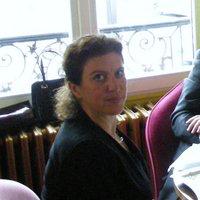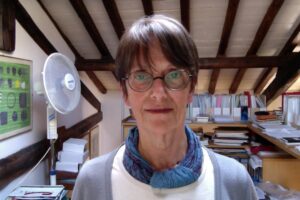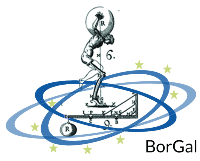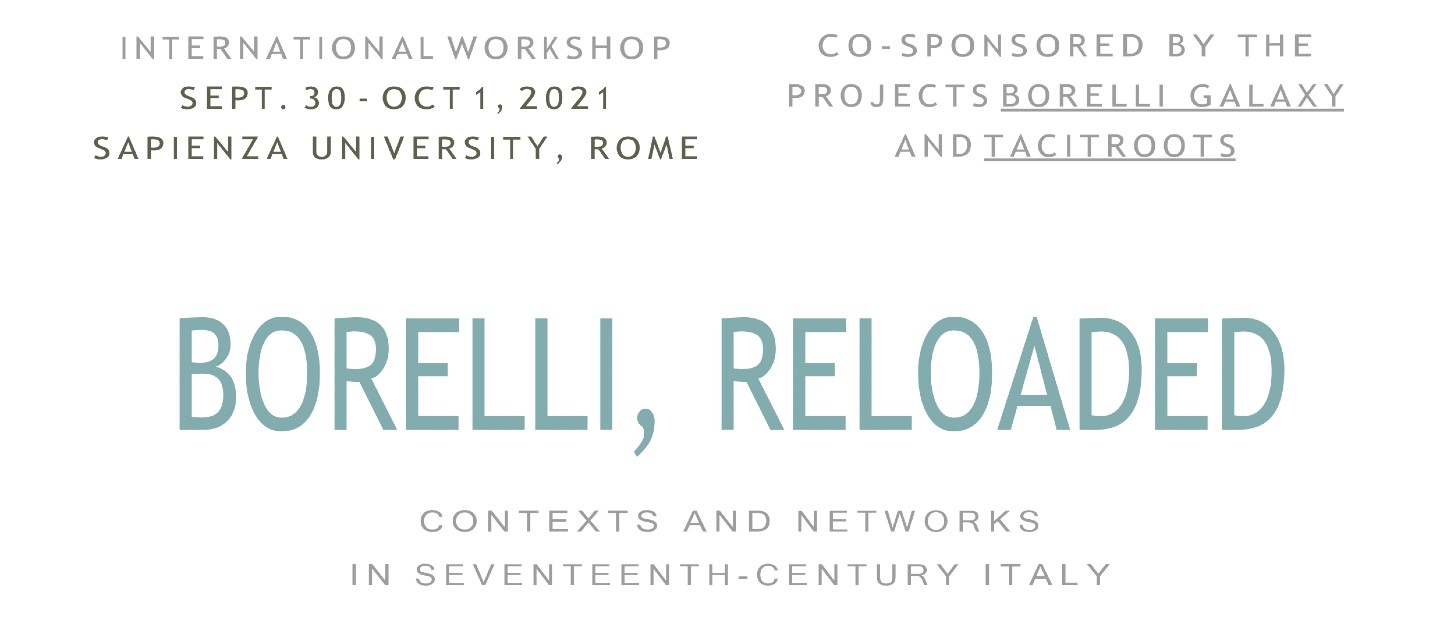Federica.favino@uniroma1.it
SARAS Department
Sapienza University of Rome

FEDERICA FAVINO
Federica Favino, coordinator, is a Marie Curie Global researcher at the Department of History Anthropology Religions Art and Performing Arts at Sapienza University of Rome. She is the recipient of numerous grants and fellowships: Mellon fellow at the Harvard University Center for studies on the Italian Renaissance Villa I Tatti, Marie Curie fellow at the Centre Alexandre Koyré in Paris, assistant research scholar at the Italian Academy for Advanced Studies at Columbia University.
She is the author of numerous studies on scientific culture in Early modern and modern Rome, with a special focus on the world of the Curia, the Academies, the University and the religious orders. She is the author of La filosofia naturale di Giovanni Ciampoli (Florence, Olschki 2015); Donne e scienza nella Roma dell’Ottocento (Rome, Viella, 2020), and co-editor of Copernicus banned. The entangled matter of the anti-Copernican decree of 1616, Florence, Olschki, 2018, with Natacha Fabbri.
RENATA AGO
Renata Ago is honorary professor of Early Modern History at Sapienza University of Rome, where she has been teaching as a full professor until 2018. She has been fellow or visiting professor in several international institutions. Member of the editorial board of several academic journals (former director of Quaderni storici) , she seated on the Advisory Committee of the CASVA – Accademia di San Luca Project, as well as on the “Conseil scientifique” and the “Conseil d’administration” of the Ecole Française de Rome. From 2009 to 2014 she has been the scientific coordinator of the EU – EACEA project European Network for Baroque Cultural Heritage – ENBaCH.
Her scientific interests focus on the Early modern social history,: rural communities and feudality in 16th to 18th centuries, family and gender history, relationship between social exchanges, economic practices and institutions, consumption and material culture, urban mobility. Her publications include: Economia barocca. Mercato e istituzioni nella Roma del Seicento, Roma, Donzelli, 2006; Il gusto delle cose. Una storia degli oggetti nella Roma del Seicento,Roma, Donzelli 2006 (English translation: Gusto for Things. A History of Objects in Seventeenth-Century Rome, Chicago University Press 2013); Tanti modi per promuoversi: artisti, letterati, scienziati nella Roma del Seicento (2016), www.enbach.eu; Storia del lavoro in Italia. L’età moderna. Trasformazioni e risorse del lavoro tra associazioni di mestiere e pratiche individuali, Roma, Castelvecchi 2018.

Renata.Ago@uniroma1.it
SARAS Department
Sapienza University of Rome

pfindlen@stanford.edu
History Department
Stanford University
PAULA FINDLEN
Paula Findlen (supervisor) is Ubaldo Pierotti Professor of Italian History at Stanford University, USA. She received her Ph.D. from UC Berkeley and taught at the University of California, Davis and Harvard before coming to Stanford. Her research focuses on early history of science and medicine, Renaissance Italy, the relations between gender, culture and knowledge. She is the recipient of numerous grants and fellowships (2016 Premio Galileo). Since 2008 she has been leading the Mapping the Republic of Letters project, together with Dan Edelstein and Nicole Coleman.
She is the author of Possessing Nature: Museums, Collecting, and Scientific Culture in Early Modern Italy (Berkeley: University of California Press, 1994), which received the 1995 Howard Marraro Prize in Italian History and the 1996 Pfizer Prize for best book in History of Science. Her recent publications include Empires of knowledge : scientific networks in the early modern world, Routledge 2019, Florence After the Medici. Tuscan Enlightenment, 1737-1790, with Corey Tazzara and Jacob Soll, Routledge 2020; The Renaissance of letters: knowledge and community in Italy, 1300-1650, with Suzanne Sutherland, Routledge 2020.

